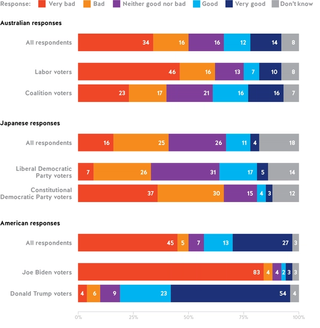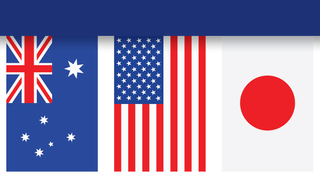Foreword
This public opinion survey report is the first major research product from the United States Studies Centre (USSC) since I took the helm as CEO, and I am very pleased with the result. Director of Research Jared Mondschein and Research Associate Victoria Cooper worked with a team of USSC scholars to design a survey that provides unique insights into Australian, American and Japanese views of the major challenges confronting all three nations: from China’s geopolitical challenge to climate change and the vicissitudes in American democracy. The survey was timed to shed light on the US midterm elections in November — a potentially consequential election in terms of the ability of the American political system to confront the challenges the United States face abroad and stabilise the uncertainty caused by the events of January 6, 2021 at home. The survey demonstrates that significant majorities of Australian and Japanese citizens understand the significance and are keeping track of such developments.
The survey was timed to shed light on the US midterm elections in November — a potentially consequential election in terms of the ability of the American political system to confront the challenges the United States face abroad and stabilise the uncertainty caused by the events of January 6, 2021 at home.
Where many public opinion surveys seek to capture the zeitgeist of the public in broad terms, this survey was designed to probe more deeply into specific policy choices. The survey is not intended to be predictive with respect to policy outcomes, nor should policy decisions be determined purely by public sentiments. As Theodore Roosevelt responded when asked how he judges the public mood on issues, “I represent the public, not public opinion.” However, surveys like this one can help policymakers map the political landscape on policy questions they will have to navigate at home and with close allies. This approach builds on the Centre’s intention to provide analysis of America, insights for Australia — and solutions for the alliance. The survey results suggest a strong alignment of the Australian, American and Japanese publics in support of AUKUS, a readiness to pay the costs of economic decoupling from China, and more robust public support for trade agreements by Americans than one hears in Washington. These are all areas where governments could be more ambitious.
This was the first USSC survey to include Japan since 2017. The Japanese public’s broad alignment with Americans and Australians is encouraging, given how much Japan brings to the table in terms of ideas and resources. The Centre will be doing more trilateral work around defence, trade, technology and development issues going forward.
In addition to the analysis in these pages, the Centre will produce a series of working papers by individual scholars and fellows that provide more detail on the specific policy questions tested with the survey. We hope this work will contribute to the public dialogue on the agenda for the alliance.
Dr Michael J. Green
Professor and Chief Executive Officer
United States Studies Centre
Executive summary
In September 2022, the United States Studies Centre conducted a public opinion survey in the United States, Australia and Japan to understand the public sentiment in each nation on a variety of issues ahead of the 2022 US midterm elections.
The results of this survey show the three surveyed countries are overwhelmingly supportive of their ties with one another, including record high levels of American approval for US alliances, and nearly identical high levels driving support for the US alliance in Australia and Japan. The geopolitical context of that support is also evident in the polling, with shared and solidified concern about China clear across the three nations and their political parties. The preferred means of addressing such a challenge indicates a notable nuanced policy understanding in the three countries. Vast majorities of consumers in the United States, Australia and Japan were willing to personally pay for economic decoupling from China. All three publics also show readiness for military options in Taiwan contingencies but strongly prefer diplomatic responses and economic responses for both Taiwan and the unfolding geopolitical competition in the Pacific Islands.
Support for deepened ties between the three nations includes significant public backing for deepening allied cooperation on diverse issues, ranging from climate change to emerging technologies. Endorsements of the one-year-old AUKUS security partnership highlighted this support for collaboration, although such enthusiasm is tempered by significant levels of the three publics being either unsure or unfamiliar with the partnership. With that said, Americans clearly still harbour some scepticism towards burden sharing in alliances, with the idea of “making US allies pay more for security assistance” resonating with a majority of Americans surveyed.
The results of this survey show the three surveyed countries are overwhelmingly supportive of their ties with one another, including record high levels of American approval for US alliances, and nearly identical high levels driving support for the US alliance in Australia and Japan.
In terms of US national priorities ahead of the midterms, US political polarisation continues to animate American public opinion, with Trump and Biden voters holding divergent views on what issues are most important for the country. Yet, in an era of increasingly hardened levels of polarisation, all groups surveyed — Trump voters, Biden voters and independent or non-voters — share a high level of concern for the way US democracy works. Further, despite considerable protectionist rhetoric and legislation in Washington, the survey indicates that the US public — including those who voted for Donald Trump — are more open to further economic engagement in Asia than some US political elites may presume.
US midterm elections rarely involve issues about US foreign policy, but the implications of a potentially divided American government in January 2023 are not lost on the Australian and Japanese publics. Nearly three-quarters of Australians and Japanese said the upcoming US midterm elections are somewhat to very important for their own countries. This understanding of US domestic issues is also evident in the concern Australian and Japanese publics report on the state of America’s democracy.
While the midterms also elect people to legislative or state-based positions, like governors, they are largely viewed as a referendum on the president in power, with the party in opposition typically gaining ground in Congress. With only two years until the next presidential election, much of the world media’s attention will be on the viability of the two leading presidential frontrunners for 2024 — Presidents Biden and Trump. On this matter, Joe Biden garners more support in Australia and Japan than his predecessor though perhaps not by the margins visible in the public sentiment of US allies in Europe.
Regardless of the outcome of the midterm and presidential elections, the significance of US allies and alliances could not be greater. The midterms are but one test of US politics. The policymaking necessary to execute lofty US and allied goals in the era of strategic competition continues unabated.
Key findings
1. US alliances are popular
- A record 58 per cent of Americans say their alliance with Australia makes the United States more secure, a significant increase from 44 per cent in December 2021.
- A similar 63 per cent of Australians and 57 per cent of Japanese respondents say their US alliance makes their nation more secure, while only 12 per cent in Australia and eight per cent in Japan say their US alliance makes them less secure.
- Nearly half of Australian and Japanese respondents want the same or increased numbers of US troops in their respective countries with 27 per cent of Australians and five per cent of Japanese respondents wanting US troop numbers in their nations to increase.
- But, at the same time, Americans want their allies to do more — 70 per cent said “making US allies pay more for security assistance” is somewhat to very important.
- And Australians and Japanese publics want to be able to operate independently — 76 per cent of Australians and 58 per cent of Japanese respondents say developing a foreign policy that was independent of global powers was somewhat to very important.
2. Negative views of China have solidified across the region
- America’s negative sentiment toward China remains bipartisan and unchanged from 2021 but also closely mirrors sentiment among America’s closest Asian allies — Australia and Japan.
- Between 52 to 55 per cent of American, Australian and Japanese respondents say China is more harmful than helpful in Asia compared with 28 per cent of Australians and seven per cent of Japanese respondents who say the United States is more harmful in Asia.
- Pluralities of the Australian and Japanese respondents do not want the United States to soften its approach to China with only 20 per cent of Australians and 12 per cent of Japanese respondents saying the US handling of China is too aggressive.
- In terms of their own countries’ response to China, Australian respondents stood out for being more likely to approve their country’s handling of China (36 per cent), indicating significantly more self-approval than the Japanese and US publics where more respondents disapprove than approve of their government’s handling of China.
- Australian predictions from 2017 that China’s influence already has and will continue to eclipse all others in Asia remain largely unchanged in 2022, yet Japanese respondents continue to see a more distributed balance of power in the region’s future.
3. US, Australian and Japanese publics favour robust responses to Chinese aggression but prioritise diplomatic and economic approaches
- Respondents in all three nations express more willingness than not when it comes to sending military forces in the event of a crisis in Taiwan, with nearly half of Australians willing to send military forces to help the United States defend Taiwan.
- At the same time, majorities in all three nations prefer the use of non-military alternatives in such a scenario, specifically economically isolating China and, in the case of Australian and American respondents, sending Taiwan weapons — a mirroring of the international response to Russia’s invasion of Ukraine in 2022.
- Should China end up building a military base in the Solomon Islands, majorities of US, Australian and Japanese respondents prefer a positive approach with increased diplomacy in the region and offering the Solomon Islands a better economic deal than China rather than punishing the Solomon Islands economically or using military force against the base.
4. Americans want trade agreements with Asia and share a scepticism of economic ties with China
- Half of Americans think the United States should join trade agreements like the Trans-Pacific Partnership while the other half are split between those against joining and those who are unsure about it.
- Only 17 per cent of Americans (and 23 per cent of Trump voters) said increasing trade and investment in Asia was not important at all.
- US, Australian and Japanese consumers are willing to pay the costs of economic decoupling from China despite record levels of inflation, with 72 per cent of Americans willing to buy additional amounts of Australian products currently blocked by China and 70 per cent of Americans and Australians willing to pay at least $500 more for a phone not made in China. Japanese respondents track with these views.
5. All three publics want to broaden the alliance agenda
- Trilateral support for the new AUKUS security partnership, particularly in the United States and Australia, dramatically outweighs criticism, with about half of US and Australian respondents and 28 per cent of Japanese respondents in favour of Australia having nuclear-powered submarines while only 18-19 per cent of respondents in the three countries were against it.
- This support complements the 70 per cent or more of the US, Australian and Japanese publics who want to see, or think it is important to have greater collaboration with their allies on issues around climate change and emerging technologies.
- Only three to six per cent of respondents in all countries express any reservations about collaborating with each other to develop emerging technologies like artificial intelligence, quantum computers and semiconductor manufacturing.
- In terms of American preferences between allies to work collaboratively on these emerging technologies issues, 72 per cent of Americans support collaborating with Australia and 61 per cent support collaborating with Japan.
6. Americans, and their allies to a lesser extent, are concerned about US democracy
- Two-thirds or more of Americans are very concerned about Congress’ ability to do its job (71 per cent), misinformation (70 per cent) and the way their democracy is working (64 per cent).
- Half of Americans are concerned about the potential for political violence, yet those who voted for Joe Biden in 2020 are nearly twice as likely (64 per cent) to be very concerned about it as those who voted for Donald Trump (34 per cent).
- Approximately half or more of Australians are very concerned about American democracy, misinformation, and political violence. The level of those very concerned in Japan about such issues in the United States is 25-30 percentage points lower than in Australia, with the plurality of Japanese respondents only somewhat concerned.
- Looking ahead to 2024, 19 per cent of Australians and 14 per cent of Japanese respondents said a second Biden term of office would be bad for their country while 50 per cent of Australians and 41 per cent of Japanese respondents said a second Trump term of office would be bad for them.
Methodology
Unless indicated otherwise, the polling data used in this report was derived from surveys conducted between 5 and 9 September 2022. These surveys were conducted by YouGov, a global public opinion and data company, which fielded representative samples drawn from Australia, the United States and Japan. The surveys were administered online to adult, citizen populations with sample sizes of 1,068 in Australia, 1,066 in the United States and 1,015 in Japan. These surveys build on previous USSC surveys of representative US and Australian samples in December 2021, February 2021, October 2020 and July 2019 and collaborative polling projects with the Asian Research Network in March 2017. Question wording was kept consistent as much as possible to permit valid inferences about trends and changes over time.
The maximum margin of error is approximately ±3 per cent for the entire sample of respondents in each country. This is the 95 per cent confidence interval for a 50 per cent proportion. It is larger for subsets of the population (for instance, by vote and age). For differences in results between each of these three countries the maximum margin of error is 4.2-4.3 per cent.
Finding 1: US alliances are popular
Americans are increasingly convinced their alliances make the United States more secure. Fifty-eight per cent of Americans believe in the security granted by their partnership with Australia and 65 per cent say the same of Japan, a significant increase from the 44 per cent and 49 per cent reported in December 2021. US public support for every alliance included in the poll saw similar jumps, with 62 per cent now saying their NATO alliance makes the US more secure and marking a definitive uptick from the 44 per cent recording the same sentiment nine months earlier.
Australian and Japanese respondents in USSC’s polling confirm a long-term trend of strong and definitive support for each country’s military alliance with the United States, with only very small minorities — only 12 per cent in Australia and eight per cent in Japan — saying it makes their nations less secure. Accordingly, nearly three-quarters of Australians and around half of the Japanese respondents said US troop numbers in their nations should either stay the same or increase. Australians and Japanese also see the value in a new Australia-Japan military alliance with 75 per cent in both nations supporting the idea.
For Australia, the high level of support for its alliances is made all the more significant as a plurality of voters across the political spectrum also consider it to be very important (44 per cent) to develop a foreign policy that is independent of global powers. Military alliances are essential to that vision as the results indicate a desire to see Australia act as part of a coalition in the Indo-Pacific rather than as a mere deputy sheriff.
Figure 1. Increasing numbers of Americans think US alliances make their country more secure
Percentage of Americans who think alliances make the United States more secure
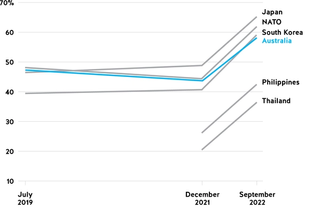
Figure 2. Does your country’s military alliance with the United States make your country more or less secure?
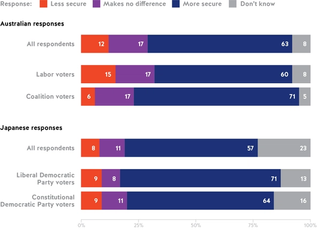
Figure 3. Australian and Japanese support for US troops in their nations
Australians were asked, “Currently, Australia gives the United States access to Australian defence facilities, such as the rotation of 2,500 US Marines in Darwin. Should Australia...”
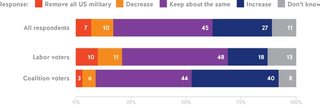
Japanese respondents were asked, “Currently, around 56,000 American military personnel are stationed in Japan. Should Japan...”
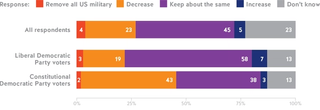
Figure 4. Would a military alliance between Australia and Japan make your country more or less secure?
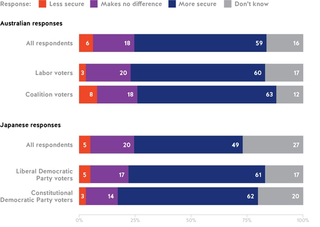
Figure 5. Making US allies pay more
Americans were asked, “How important is it to make US allies pay more for US security assistance?”
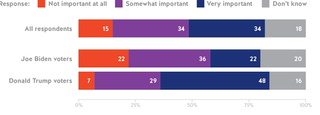
Figure 6. Working independently of global powers
Australian and Japanese respondents were asked, “How important is it to develop a foreign policy that is independent of global powers?”
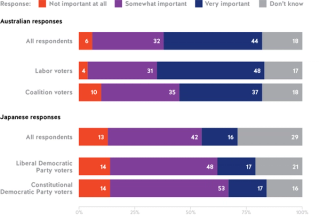
Finding 2: Negative views of China have solidified across the region
USSC polling in 2021 showed a dramatic increase in negative sentiments towards China among American respondents and our 2022 polling shows that negative view persists. Rising from 25 per cent in July 2019 to 36 per cent in December 2021, the same number (36 per cent) of Americans continue to describe China as an enemy. Where US political polarisation is severe, attitudes toward China are conspicuously aligned. Seventy-one per cent of Trump voters and 73 per cent of Biden voters share the view that China is either an enemy or unfriendly.
Levels of concern about China are remarkably similar across the United States, Australia and Japan, with 52 to 55 per cent of the three nations saying China is more harmful than helpful in Asia. At the same time, however, the level of optimism about China was highest in Australia, with 20 per cent of Australians, 13 per cent of Americans and only 10 per cent of Japanese respondents saying China was more helpful in Asia.
Levels of concern about China are remarkably similar across the United States, Australia and Japan, with 52 to 55 per cent of the three nations saying China is more harmful than helpful in Asia.
In light of this, when it comes to the US handling of China, the consensus across the three countries shows little support for a weakened posture. Pluralities of Australians and Japanese find the US response to be appropriate and where respondents diverge from the middle ground, they are more likely to say the US response is too weak than too aggressive.
In rating their own nation’s handling of China, Australian respondents were more likely to approve than disapprove of their nation’s handling of China while American and Japanese respondents were more likely to disapprove than approve of their country’s approach to China (42 to 20 per cent in the United States and 38 to 16 per cent in Japan). Almost half of Americans think their response to China is too weak, and while much of this is spurred on by a strong two-thirds of Trump voters reporting the US management as too weak, almost a quarter of Biden voters hold the same view. Indeed, less than a third of Biden voters (and only seven per cent of Trump voters) approve of the US handling of China.
Looking to the future of power and influence in Asia, Australians and Japanese have similar assessments to five years ago. Australians saw and still overwhelmingly see China as the most influential country in Asia today and in 10 years’ time by a margin of around 60 per cent. Japan, by comparison, had a much more multipolar assessment of the future of power in Asia in both 2017 and 2022. In fact, about as many Japanese respondents thought Japan was as influential as China in the region in 2017. However, Japan’s self-belief withered over time, with now only 13 per cent (compared with 41 per cent five years ago) saying Japan is the most influential country in Asia today.
Figure 7. Percentage of Americans describing country as enemy

Figure 8. Is China more helpful or harmful in Asia?
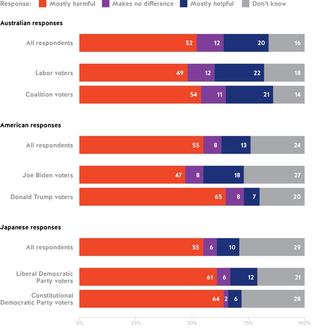
Figure 9. Is the United States more helpful or harmful in Asia?
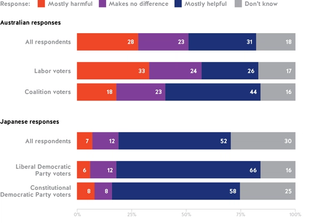
Figure 10. Do you approve or disapprove of the way your country is handling China?
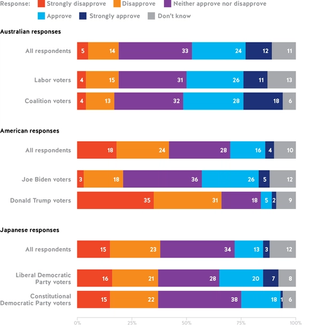
Figure 11. The way the United States is handling China is...
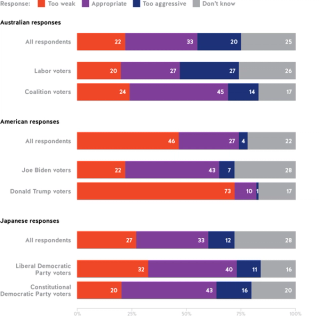
Figure 12. Australian and Japanese views of influence in the region
Australian responses
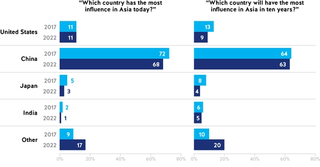
Japanese responses
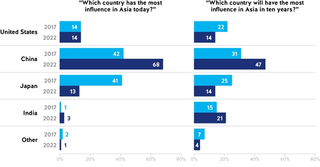
Finding 3: US, Australian and Japanese publics favour robust responses to Chinese aggression but prioritise diplomatic and economic approaches
The United States, Australia and Japan concur on the challenge China poses in the region and show nuanced opinions on how to respond to two separate hypothetical scenarios: a Chinese attack on Taiwan and the construction of a Chinese military base in Solomon Islands. Overall, the plurality (and sometimes majority) of respondents across all three nations say they don’t know or neither agreed nor disagreed with the two scenarios. This might suggest that ultimately the preferred course of action by their respective countries is scenario- and context-dependent.
Nearly half of Australian and around a third of American and Japanese respondents support sending military forces to help defend Taiwan if China attacks it.
All three nations express more willingness than not to involve their military forces in a crisis in the Taiwan Strait. Nearly half of Australian and around a third of American and Japanese respondents support sending military forces to help defend Taiwan if China attacks it. Economically isolating China and providing Taiwan with weapons in such a scenario was more popular across the United States, Australia and Japan, earning majority support in all three publics. It should be noted, however, that Australian and Japanese respondents were only offered the involvement of their military forces “to help the United States defend Taiwan” whereas US respondents were only offered the option to send military forces.
Amid rapidly increased geopolitical interest in the Pacific — prompted most recently by China’s signed security partnership with the Solomon Islands — US, Australian and Japanese respondents were asked how they would want their nations to respond to a scenario in which China builds a military base in Solomon Islands. Majorities of US, Australian and Japanese respondents prefer increasing diplomacy in the region and offering Solomon Islands a better economic deal than China, rather than punishing Solomon Islands economically or using military force against the base. Indeed, the use of military force against the base is the least supported option by US, Australian and Japanese respondents.
Figure 13. Australians were asked, “If China attacks Taiwan, how much do you agree or disagree with Australia responding in the following ways?”
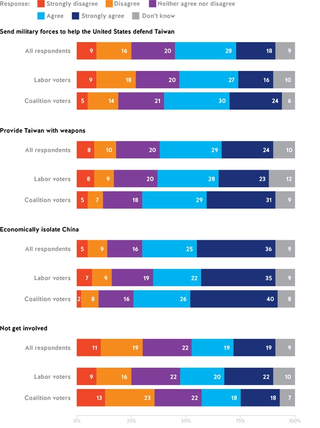
Figure 14. Americans were asked, “If China attacks Taiwan, how much do you agree or disagree with the United States responding in the following ways?”
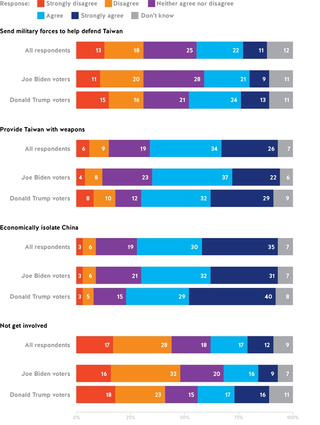
Figure 15. Japanese respondents were asked, “If China attacks Taiwan, how much do you agree or disagree with Japan responding in the following ways?”
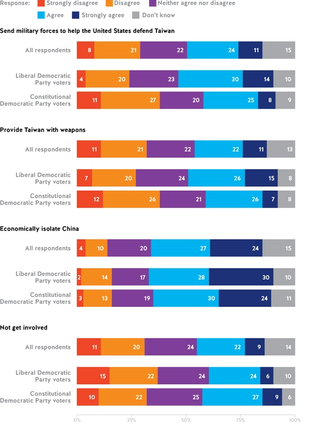
Figure 16. Australian views on the Solomon Islands
China has reached a security partnership with the Solomon Islands. If China builds a military base there, how much do you support Australia responding in the following ways?
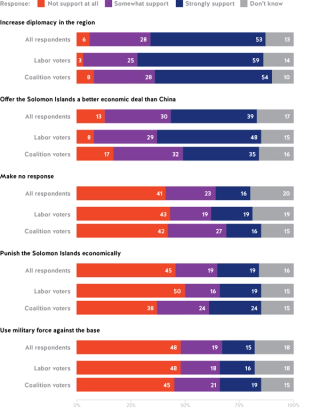
Figure 17. American views on the Solomon Islands
China has reached a security partnership with the Solomon Islands. If China builds a military base there, how much do you support the United States responding in the following ways?
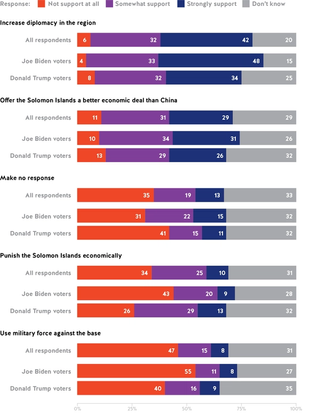
Figure 18. Japanese views on the Solomon Islands
China has reached a security partnership with the Solomon Islands. If China builds a military base there, how much do you support Japan responding in the following ways?
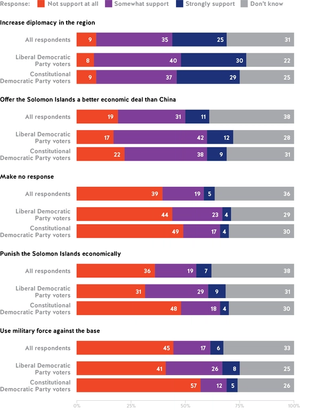
Finding 4: Americans want to increase trade with Asia and share a scepticism of economic ties with China
In May 2022, the Biden administration, in collaboration with a dozen other nations, announced the launch of the Indo-Pacific Economic Framework (IPEF). While not increasing market access to the United States or other nations, the initiative would optimally bolster economic ties between the nations in the Indo-Pacific. Meanwhile other nations in the region — including US allies like Australia and Japan — proceeded with IPEF’s predecessor, the market-access granting Trans-Pacific Partnership (TPP), from which the United States withdrew in 2017. With the Biden administration making clear that a return to the TPP is extremely unlikely, the USSC asked US, Australian and Japanese respondents about the United States rejoining the TPP or TPP-like agreements as well as the importance of their nations increasing trade and investment with Asia.
A sizeable majority of both Australian and Japanese respondents would favour the US rejoining the Trans-Pacific Partnership, with 11 per cent or less in each country being against such a scenario.
Approximately half of US respondents are in favour of joining an agreement like the TPP, while the other half are almost evenly split between those who are against joining and those who are unsure. Perhaps most remarkably given the acrimonious response to the TPP in the 2016 presidential election, only 40 per cent of Trump voters are against a TPP-like agreement while 32 per cent are in favour and the remaining 28 per cent unsure. Furthermore, the majority of Trump voters (57 per cent) say increasing US trade and investment with Asia is either somewhat or very important.
Meanwhile, Biden voters overwhelmingly support joining a TPP-like agreement, with 61 per cent in favour, 14 per cent against it and the remaining 24 per cent unsure. A sizeable majority of both Australian and Japanese respondents would also favour the US rejoining the TPP, with 11 per cent or less in each country being against such a scenario.
Beyond supporting increasing ties with each other, US, Australian and Japanese respondents made clear that they would, as consumers, be willing to pay the costs of economic decoupling from China despite record levels of inflation. Nearly three-quarters of Americans said they would be willing to buy additional amounts of Australian products currently blocked by China, while more than 80 per cent or more of respondents in the three nations express a willingness to pay $100 more for a phone not made in China.
Figure 19. American attitudes toward TPP-like trade agreements
Americans were asked, “In 2017, the United States withdrew from the largest trade agreement in Asia at the time — the Trans-Pacific Partnership. Many US allies hope the United States will rejoin it or a form of it someday. Should the United States…”
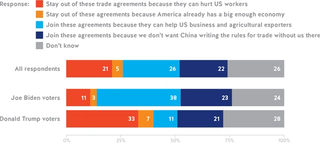
Figure 20. Australian, American and Japanese attitudes on “How important is it for your country to increase trade and investment with Asia?”
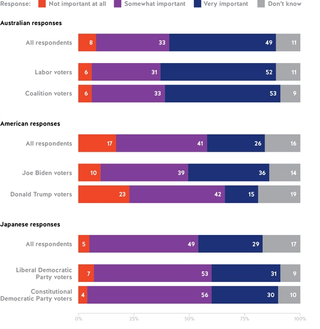
Figure 21. Australian responses to “Would you approve or disapprove of the following countries now joining the Trans-Pacific Partnership?”
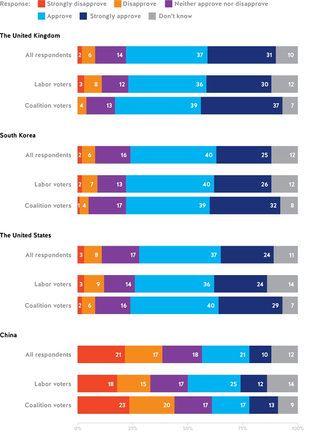
Figure 22. Japanese responses to “Would you approve or disapprove of the following countries now joining the Trans-Pacific Partnership?”
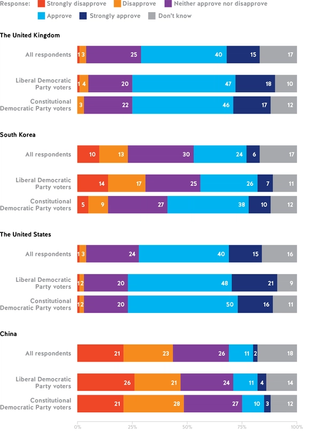
Figure 23. American and Australian consumers are willing to pay costs of decoupling from China
Some people say your country is too reliant on products made in China. If it cost <random price increase 0, $100, $250, $500> more than a smart phone made in China, would you favour buying a smart phone made in a country other than China to reduce the country’s reliance on Chinese-made products?
Per cent responding with “would favour phone made in another country” rather than “would favour phone made in China.”
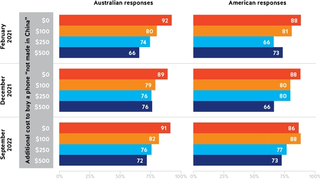
Finding 5: All three publics want to broaden the alliance agenda
Trilateral support for the new AUKUS security partnership between Australia, the United Kingdom and the United States outweighs criticism, though a plurality (and sometimes majority) of respondents in Australia, Japan and the United States express a combination of being unsure or having no opinion about it.
When it comes to the expansion of the AUKUS partnership, Americans’ support for adding Japan to the agreement (55 per cent) was largely bipartisan. Australians were also greatly supportive of including Japan (62 per cent) — a move that could address potential gaps regarding the defence production capacity of the United States, Australia and the United Kingdom. Contrarily, Japanese respondents tepidly agree with the notion of expanding AUKUS to include Japan; 39 per cent agree, 24 per cent did not agree or disagree, six per cent disagree and 29 per cent simply said they didn’t know.
Compared to Australia where having nuclear submarines received greater support from Americans, fewer Americans endorse Japan owning nuclear submarines.
Compared to Australia where having nuclear submarines received greater support from Americans (40 per cent favour), fewer Americans endorse Japan owning nuclear submarines (30 per cent favour). Minor discrepancies in support for technological exchange between the United States and Australia, and the United States and Japan, are also evident among Americans when asked about collaborating with allies on these emerging technologies issues. Seventy-two per cent of Americans support collaborating with Australia and 61 per cent support collaborating with Japan.
Yet, most resoundingly, across all three nations, only three to six per cent express any reservations about collaborating with one another to develop emerging technologies like artificial intelligence, quantum computers and semiconductor manufacturing. Indeed, significantly large majorities of the US, Australian and Japanese publics — 70 per cent or more — support collaborating with their allies on issues around emerging technologies.
As with emerging technologies, majorities in all countries said climate collaboration with allies is important. The only exception to this is Trump voters. Biden voters largely drive support in the United States with 82 per cent of voters reporting collaboration to be very important and a further 14 per cent determining it to be important. This might suggest that there is a significant appetite for greater collaboration on climate change with allies and partners like Australia and Japan, under Biden’s leadership.
Figure 24. Australians were asked, “Do you agree or disagree with the following statements about AUKUS?”

Figure 25. Americans were asked, “Do you agree or disagree with the following statements about AUKUS?”
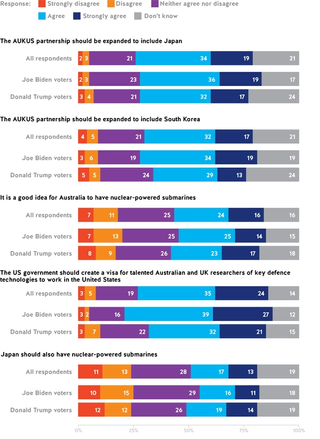
Figure 26. Japanese respondents were asked, “Do you agree or disagree with the following statements about AUKUS?”
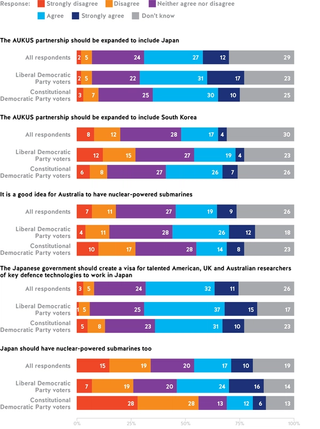
Figure 27. Collaboration on climate change among allies
Australians were asked, “How important is it to collaborate with the United States on climate change?”

Americans were asked, “How important is it to collaborate with allies on climate change?”

Japanese respondents were asked, “How important is it to collaborate with the United States on climate change?”

Figure 28. Collaboration on emerging technologies
Should your country collaborate with <country name> on the development of technologies like artificial intelligence, quantum computers and semiconductor manufacturing?
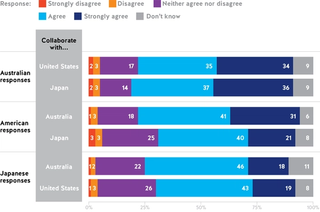
Finding 6: Americans, and their allies to a lesser extent, are concerned about US democracy
Domestic priorities for the next Congress
Ahead of the 2022 midterm election, inflation dominates the list of very important items for the next Congress to address. More than four in five Americans consider reducing inflation a very important issue, showing relatively little divergence between Biden and Trump voters. Reducing crime also ranked highly as a very important issue, with well over two-thirds of all respondents citing its importance and seeing the most convergence between Biden and Trump voters. Where the average partisan difference on very important issues is 33 points, reducing crime sees only a 14-point difference between Trump and Biden voters’ sentiments.
Trump and Biden voters remain largely at loggerheads in terms of allocating importance to different domestic policy priorities. Where Trump voters’ top concerns are inflation (91 per cent), immigration (80 per cent) and crime (76 per cent), Biden voters prioritise decreasing gun violence (82 per cent), dealing with climate change (81 per cent) and improving education (80 per cent). Reflecting much of the campaigning to date, 58 per cent of Trump voters say protecting abortion is not at all important, and nearly 80 per cent of Biden voters say the issue is very important for the next Congress.
The state of American democracy from US, Australian and Japanese perspectives
Two-thirds or more of Americans are very concerned about Congress’ ability to do its job (71 per cent), misinformation in their country (70 per cent) and the way democracy is working (64 per cent). Where so much seems to divide the partisan voters, the near alignment of concern on these issues is significant. When it comes to matters of compromise on the Hill, Biden voters are much more likely to report being very concerned. And, more starkly, those who voted for Biden in 2020 are also nearly two times more concerned with the potential for political violence than those that voted for Trump.
Australians and Japanese are significantly less concerned with the workings of American democracy than Americans. For Japanese respondents, a plurality of respondents report being only somewhat concerned with the issues presented. Conversely, Australians appear warier; approximately half or more indicated they were very concerned about American democracy, misinformation and political violence. Australians also showed near identical levels of concern as Trump voters on misinformation and appear more concerned than Trump voters (by 14 percentage points) about political violence in the United States.
Are the midterms a referendum on President Biden or President Trump?
Despite record-low approval ratings throughout 2022, President Biden is still regarded highly among his voters, with only 12 per cent of 2020 Biden voters suggesting a second Biden term would be a bad or very bad thing for America. At the same time, a second Trump term fares about as well among all US respondents as a second Biden term, making the outcome of a potential replay in 2024 of the 2020 election all the more uncertain.
Regardless of the outcome of the midterm elections, the new Congress ultimately will both enable and constrain the policymaking necessary to execute lofty US and allied goals as the era of strategic competition continues unabated.
Outside of the United States, Australians and Japanese appear largely indifferent to a second Biden term, with a plurality of Australians (32 per cent) and Japanese (43 per cent) saying it would neither be a good nor bad thing for their respective countries. By contrast, half of Australians (50 per cent) have a negative assessment of a second Trump term, with a substantial 34 per cent indicating that it would be a very bad thing for Australia. An Australian partisan breakdown of results however provides a more mixed assessment. There were almost as many positive (32 per cent) as negative (40 per cent) reactions among Coalition supporters for a second Trump term, whereas Labor voters decidedly view a second Trump term as a negative thing for Australia, by a margin of 45 percentage points.
While the midterms decide which party controls Congress and therefore the purse strings for resourcing the US government’s strategy in the Indo-Pacific, about half of Australians and two-thirds of Japanese respondents had no opinion as to whether Democrats or Republicans did a better job of managing China. Of those who did express an opinion, party preferences were almost evenly split. American respondents, meanwhile, indicate a slight preference for Republicans over Democrats.
Regardless of the outcome of the midterm elections, the new Congress ultimately will both enable and constrain the policymaking necessary to execute lofty US and allied goals as the era of strategic competition continues unabated. The stakes for US allies like Australia and Japan could not be greater.
Figure 29. Americans were asked, “How important are the following items for the next Congress to address?”
Per cent responding with “very important,” compared with “somewhat important” or “not at all important.”
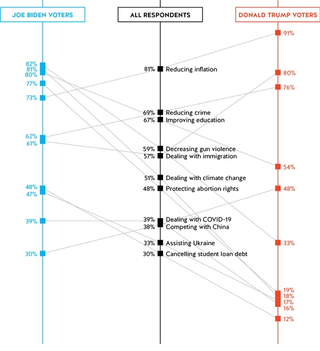
Figure 30. American, Australian and Japanese respondents were asked, “How concerned are you about the following in the United States?”
Per cent responding with “very concerned,” compared with “a little concerned,” “not at all concerned” or “don’t know.”
| American responses | Australian responses | Japanese responses | |||
| Donald Trump voters | Joe Biden voters | All American responses | |||
| The way democracy is working | 62 | 67 | 64 | 46 | 18 |
| Congress’ ability to do its job | 73 | 70 | 71 | 42 | 12 |
| The lack of compromise between Democrats and Republicans | 47 | 67 | 57 | 43 | 14 |
| Misinformation | 59 | 81 | 70 | 58 | 29 |
| Potential political violence | 34 | 63 | 49 | 48 | 20 |
Figure 31. American, Australian and Japanese respondents were asked, “Which American political party does a better job of managing China?”
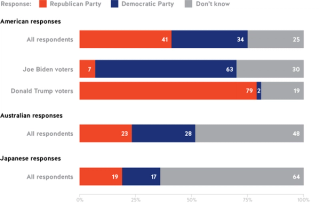
Figure 32. Australian, American and Japanese respondents were asked, “If Joe Biden wins a second term as president in 2024, would that be good or bad for your country?”
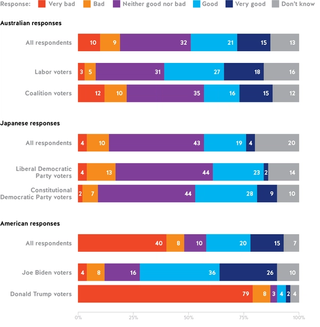
Figure 33. Australian, American and Japanese respondents were asked, “If Donald Trump wins a second term as president in 2024, would that be good or bad for your country?”
